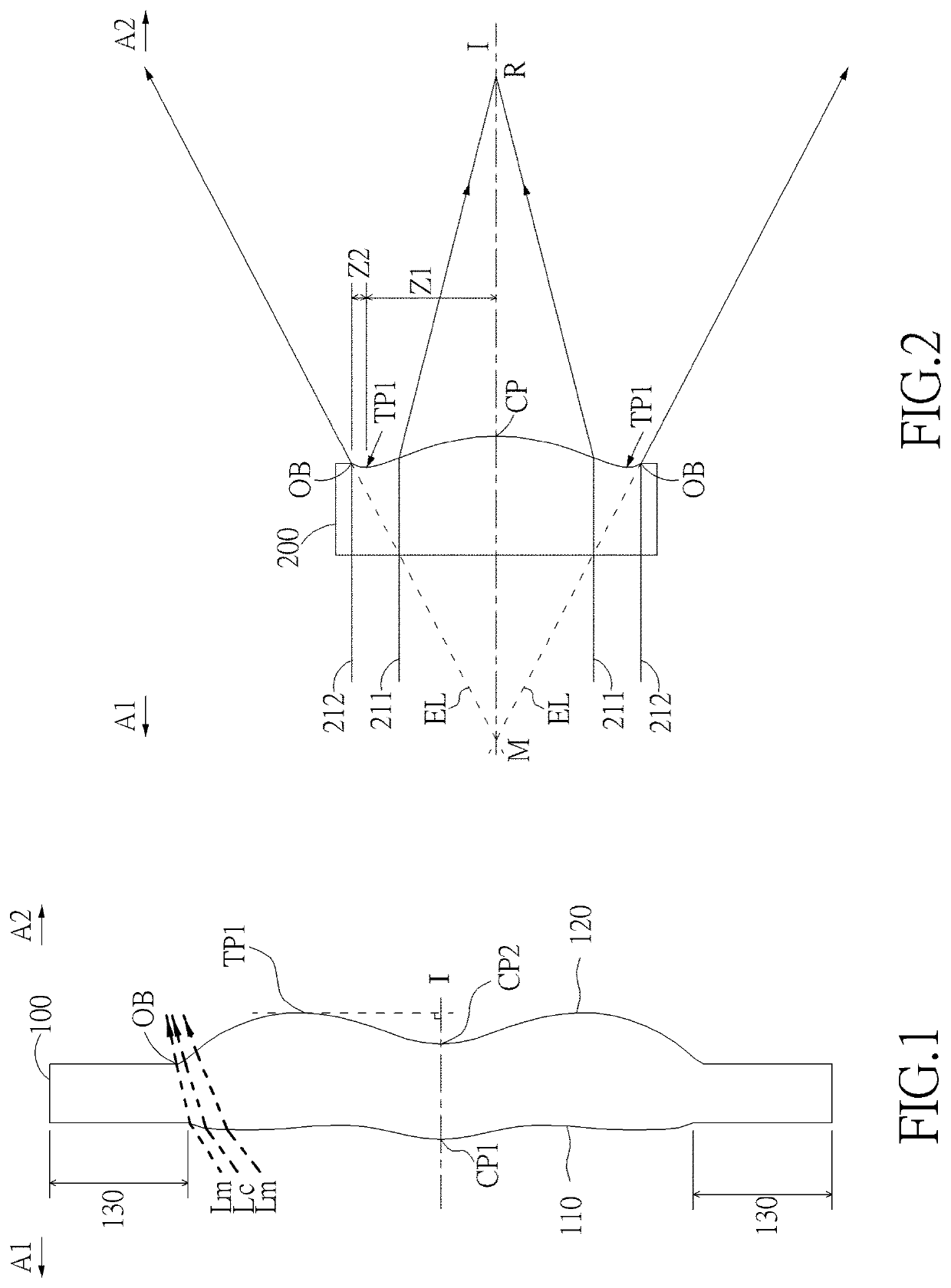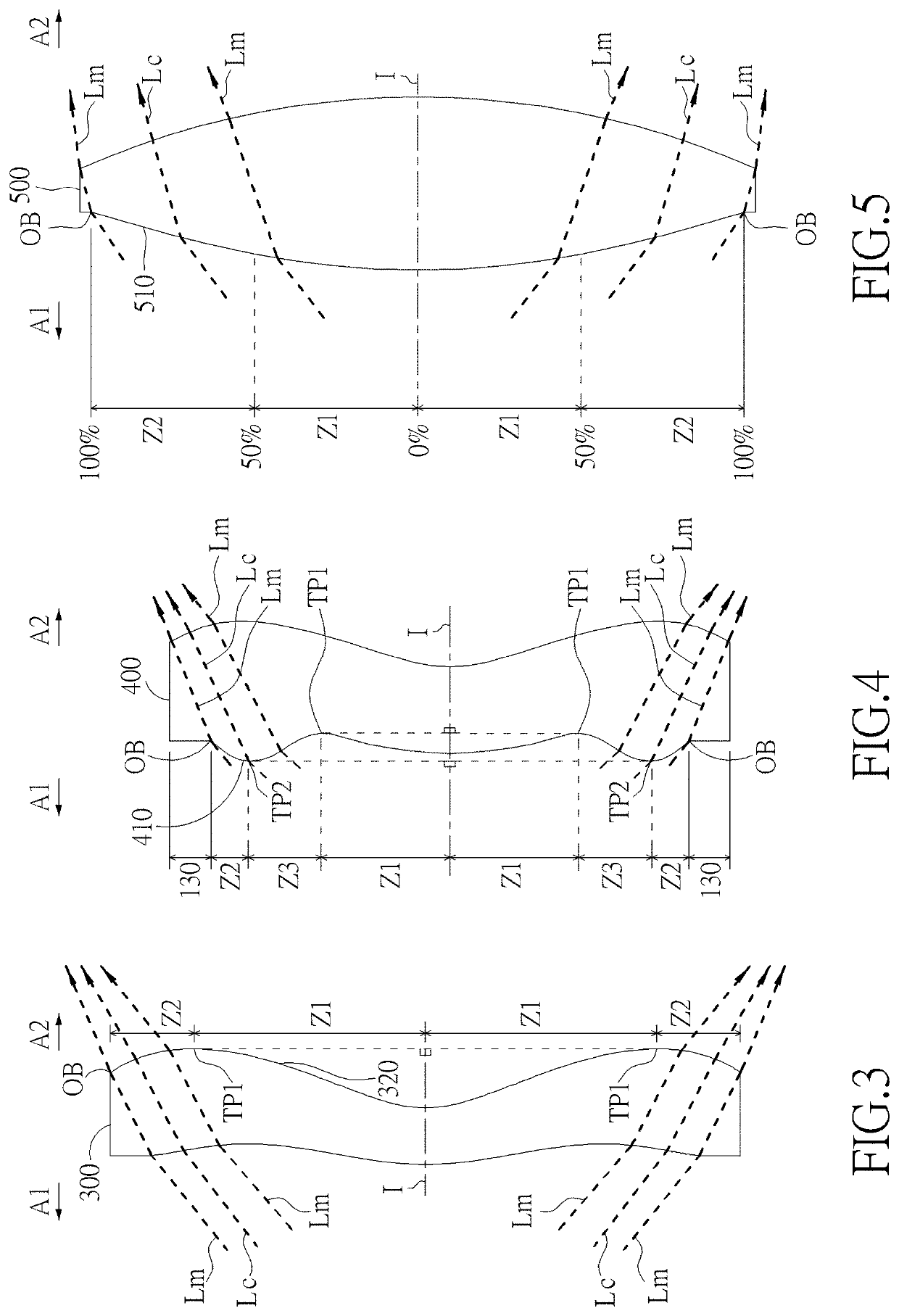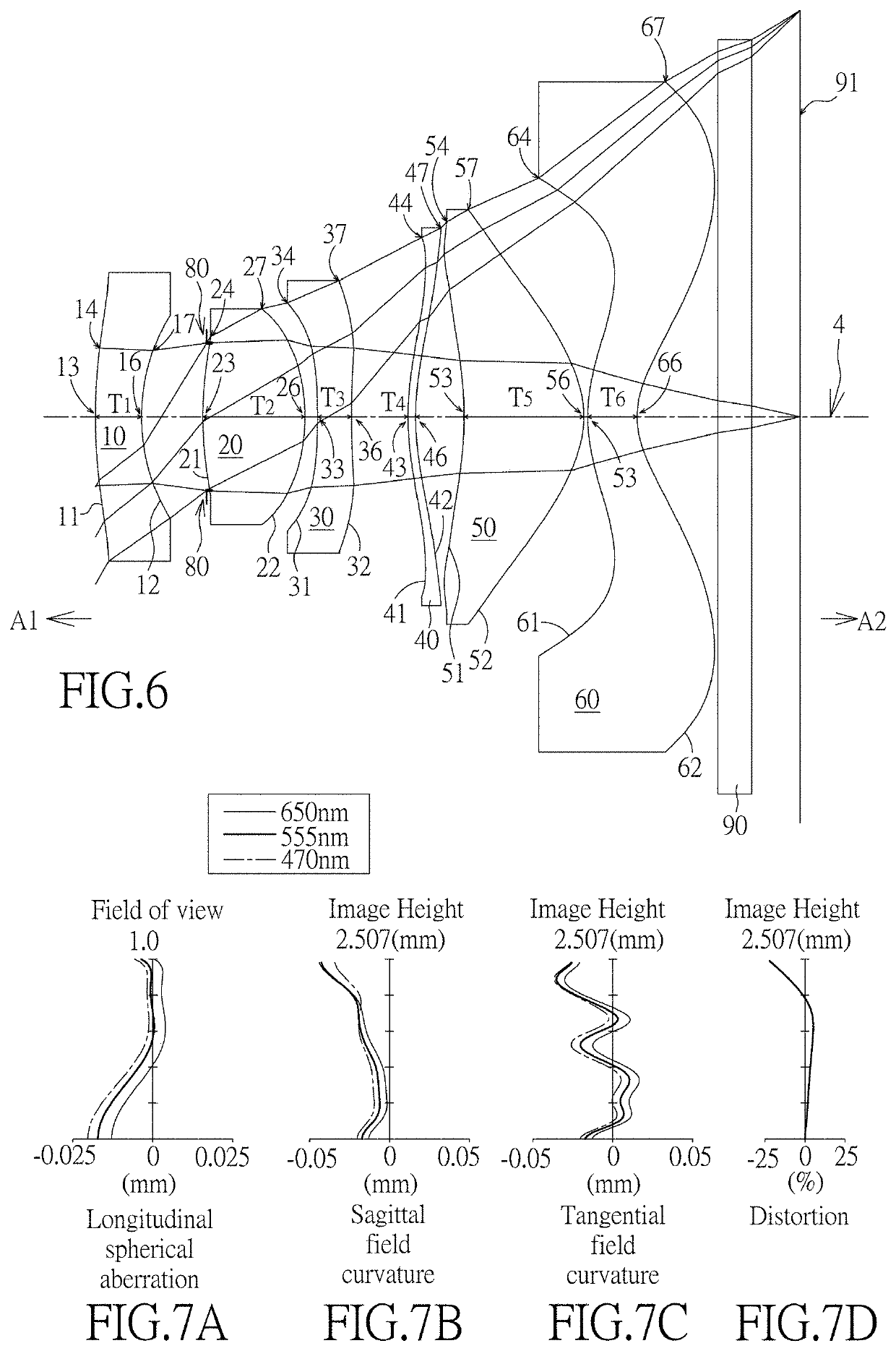Optical imaging lens
a technology of optical imaging and lens, applied in the field of optical imaging lenses, can solve the problems of poor distortion aberration, failure to meet market demands, and worse imaging quality, and achieve the effects of ensuring imaging quality, reducing total length, and reducing total weigh
- Summary
- Abstract
- Description
- Claims
- Application Information
AI Technical Summary
Benefits of technology
Problems solved by technology
Method used
Image
Examples
first embodiment
[0103]Please refer to FIG. 6 which illustrates the first embodiment of the optical imaging lens 1 of the present invention. Please refer to FIG. 7A for the longitudinal spherical aberration on the image plane 91 of the first embodiment; please refer to FIG. 7B for the field curvature aberration on the sagittal direction; please refer to FIG. 7C for the field curvature aberration on the tangential direction; and please refer to FIG. 7D for the distortion aberration. The Y axis of the spherical aberration in each embodiment is “field of view” for 1.0. The Y axis of the field curvature aberration and the distortion aberration in each embodiment stands for the “image height” (ImgH), which is 2.507 mm.
[0104]The optical imaging lens 1 of the first embodiment exclusively has six lens elements 10, 20, 30, 40, 50 and 60 with refracting power. The optical imaging lens 1 also has an aperture stop 80, a filter 90, and an image plane 91. The aperture stop 80 is provided between the first lens el...
second embodiment
[0114]Please refer to FIG. 8 which illustrates the second embodiment of the optical imaging lens 1 of the present invention. It is noted that from the second embodiment to the following embodiments, in order to simplify the figures, only the components different from what the first embodiment has, and the basic lens elements will be labeled in figures. Other components that are the same as what the first embodiment has, such as a convex surface or a concave surface, are omitted in the following embodiments. Please refer to FIG. 9A for the longitudinal spherical aberration on the image plane 91 of the second embodiment, please refer to FIG. 9B for the field curvature aberration on the sagittal direction, please refer to FIG. 9C for the field curvature aberration on the tangential direction, and please refer to FIG. 9D for the distortion aberration. The components in this embodiment are similar to those in the first embodiment, but the optical data such as the refracting power, the ra...
third embodiment
[0116]Please refer to FIG. 10 which illustrates the third embodiment of the optical imaging lens 1 of the present invention. Please refer to FIG. 11A for the longitudinal spherical aberration on the image plane 91 of the third embodiment; please refer to FIG. 11B for the field curvature aberration on the sagittal direction; please refer to FIG. 11C for the field curvature aberration on the tangential direction; and please refer to FIG. 11D for the distortion aberration. The components in this embodiment are similar to those in the first embodiment, but the optical data such as the refracting power, the radius, the lens thickness, the aspheric surface or the back focal length in this embodiment are different from the optical data in the first embodiment. Besides, in this embodiment, the fourth lens element 40 has negative refracting power, and the optical axis region 43′ of the object-side surface 41 of the fourth lens element 40 is concave.
[0117]The optical data of the third embodim...
PUM
 Login to View More
Login to View More Abstract
Description
Claims
Application Information
 Login to View More
Login to View More - R&D
- Intellectual Property
- Life Sciences
- Materials
- Tech Scout
- Unparalleled Data Quality
- Higher Quality Content
- 60% Fewer Hallucinations
Browse by: Latest US Patents, China's latest patents, Technical Efficacy Thesaurus, Application Domain, Technology Topic, Popular Technical Reports.
© 2025 PatSnap. All rights reserved.Legal|Privacy policy|Modern Slavery Act Transparency Statement|Sitemap|About US| Contact US: help@patsnap.com



